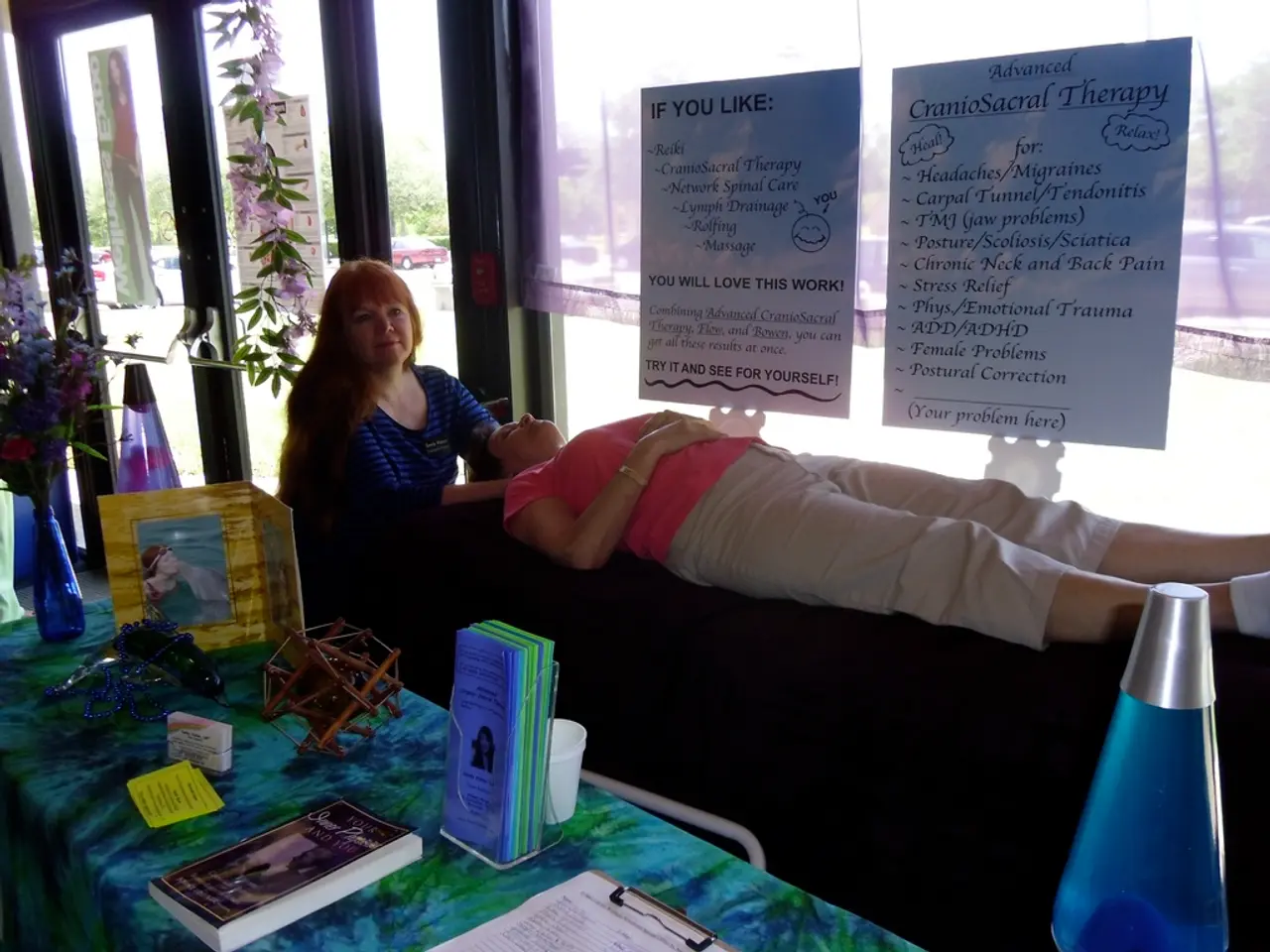Strategies for Soothing Night-Time Anxiety in Individuals with Generalized Anxiety Disorder
In the pursuit of better sleep and reduced anxiety, a variety of techniques have been found to be effective. Here are some science-backed strategies to help you on your path to a more restful night.
Research has shown that incorporating deep breathing and body scan meditations into a bedtime routine can significantly improve sleep quality and quality of life in older adults. These mindfulness practices help calm the mind and body, preparing you for a peaceful slumber.
Visualization is another technique that involves imagining a peaceful and calming scene or experience in your mind's eye. This practice can help distract your mind from worrisome thoughts and promote relaxation.
Grounding techniques, such as using your senses to anchor yourself in the present moment, can also be beneficial. The 5-4-3-2-1 technique, for instance, encourages focusing on five things you can see, four things you can feel, three things you can hear, two things you can smell, and one thing you can taste.
Environmental changes can also contribute to better sleep. Investing in blackout curtains, using white noise or earplugs, and ensuring a comfortable mattress and pillows can all improve sleep quality.
If sleep anxiety significantly impacts your daily functioning, it's important to seek additional help from a mental health professional. A mental health professional can provide personalized guidance and treatment options, such as cognitive-behavioral therapy (CBT) (including CBT-I), medication management, or other evidence-based interventions.
Generalized Anxiety Disorder (GAD) is a mental health condition characterized by persistent and excessive worry about a wide range of everyday concerns. Identifying and challenging irrational or catastrophic thoughts commonly associated with GAD can help manage anxiety levels.
Avoiding caffeine after midday, alcohol six hours before bed, and heavy meals two or three hours before bedtime can also help improve sleep quality.
Reading before bed can be beneficial as well. Clinical Psychologist and Sleep Medicine Expert Dr. Michael Breus recommends choosing paperbacks and hardbacks to avoid blue light exposure.
Creating a consistent sleep routine can help regulate the body's internal clock and improve the quality of sleep.
Progressive Muscle Relaxation (PMR) has been found to reduce anxiety and improve sleep quality in patients with COVID-19 and burn patients. This technique involves tensing and then relaxing different muscle groups in the body, progressively moving from toes to head.
App-based mindfulness training has also been shown to decrease emotional reactivity, worry, and sleep disturbance.
Lastly, non-sleep deep rest (NSDR) is a relaxation technique that induces a state of deep calmness and rest similar to sleep, but while awake. It has been shown to provide mental and physical health benefits such as reducing stress, enhancing learning and memory, replacing lost sleep, and improving the ability to fall back asleep.
Implementing these techniques into your daily routine can help manage anxiety and improve sleep quality, leading to a more restful and productive life. Always remember, if sleep anxiety becomes overwhelming, seeking help from a mental health professional is crucial.
Read also:
- Understanding Hemorrhagic Gastroenteritis: Key Facts
- Stopping Osteoporosis Treatment: Timeline Considerations
- Tobacco industry's suggested changes on a legislative modification are disregarded by health journalists
- Expanded Community Health Involvement by CK Birla Hospitals, Jaipur, Maintained Through Consistent Outreach Programs Across Rajasthan








